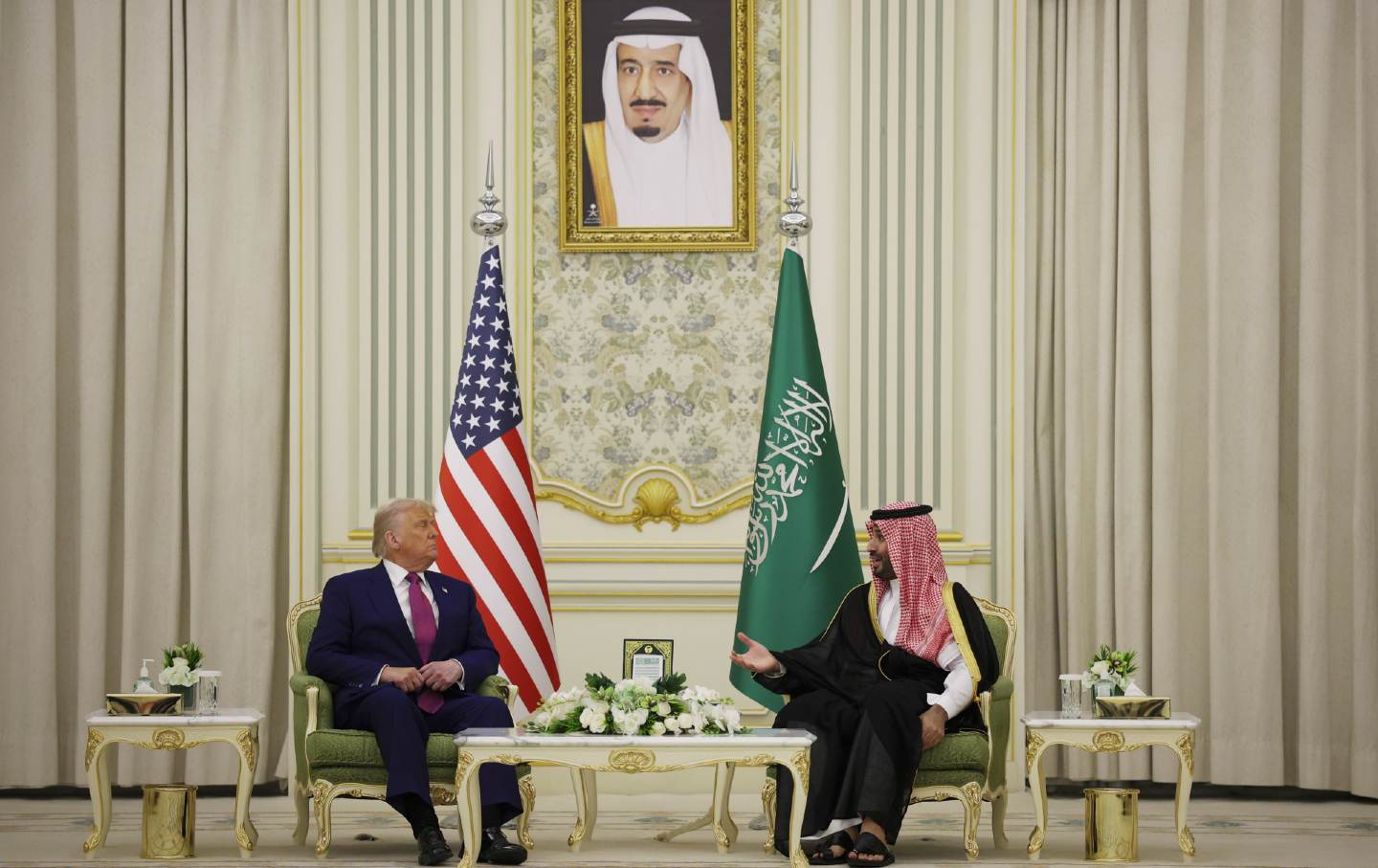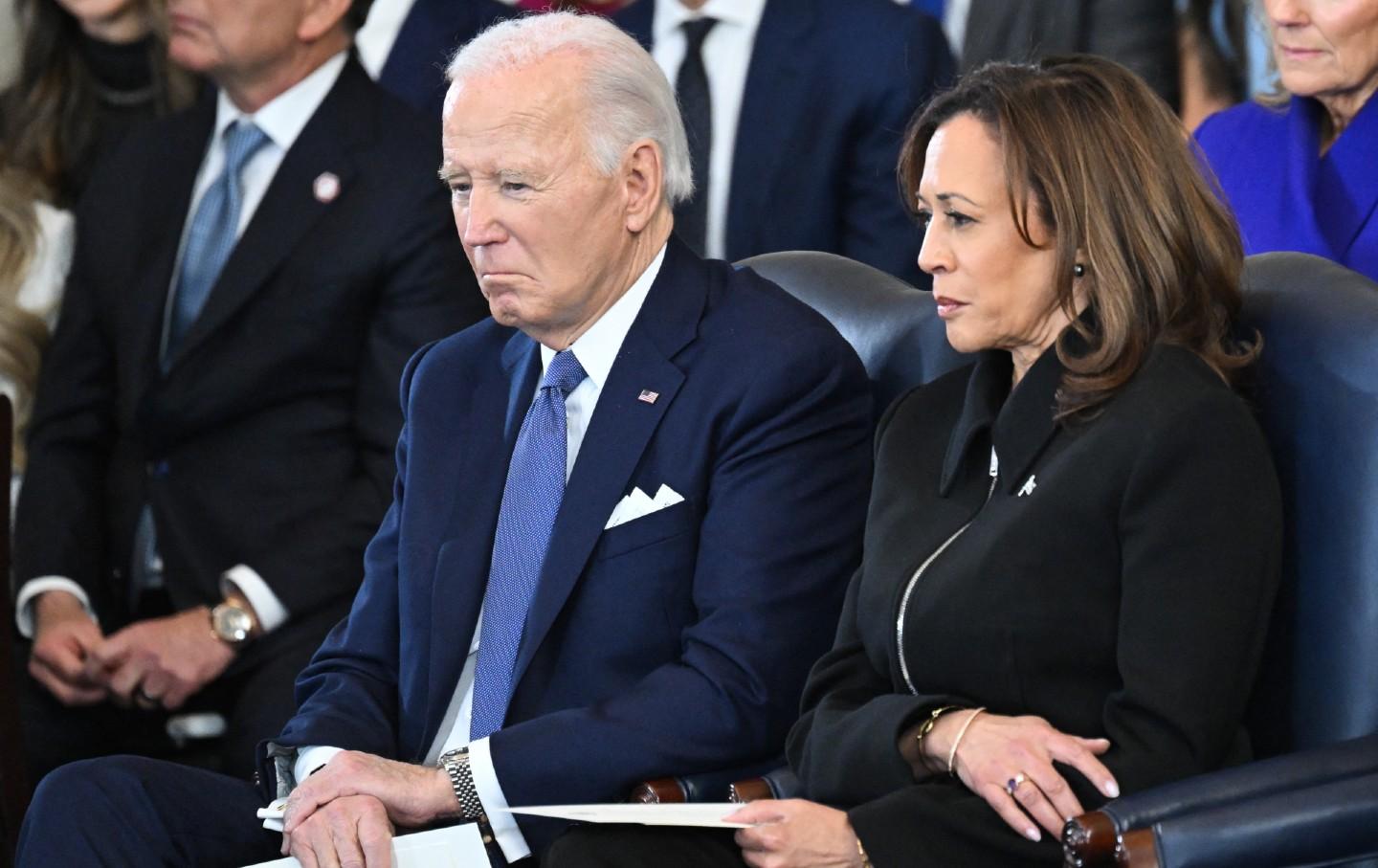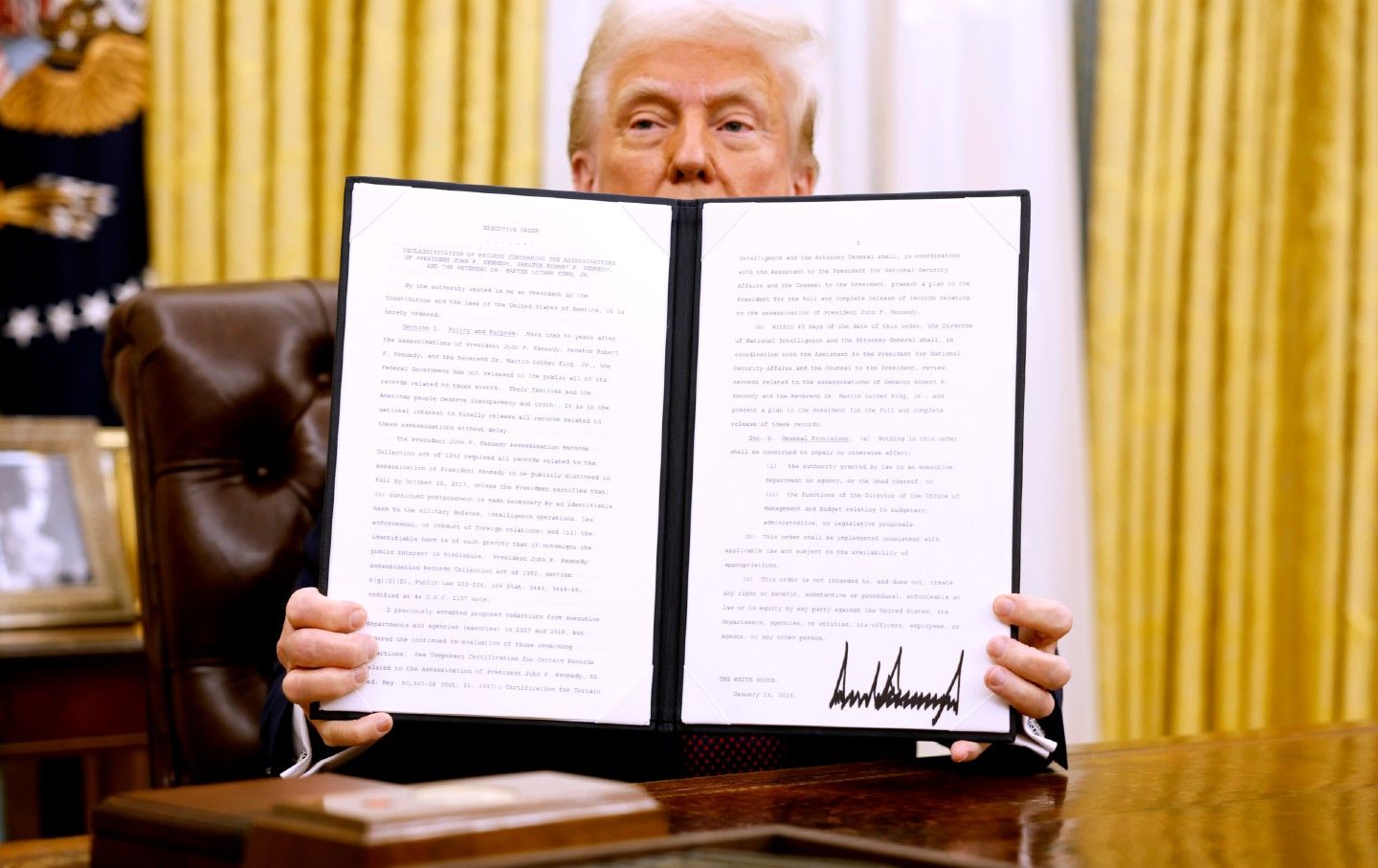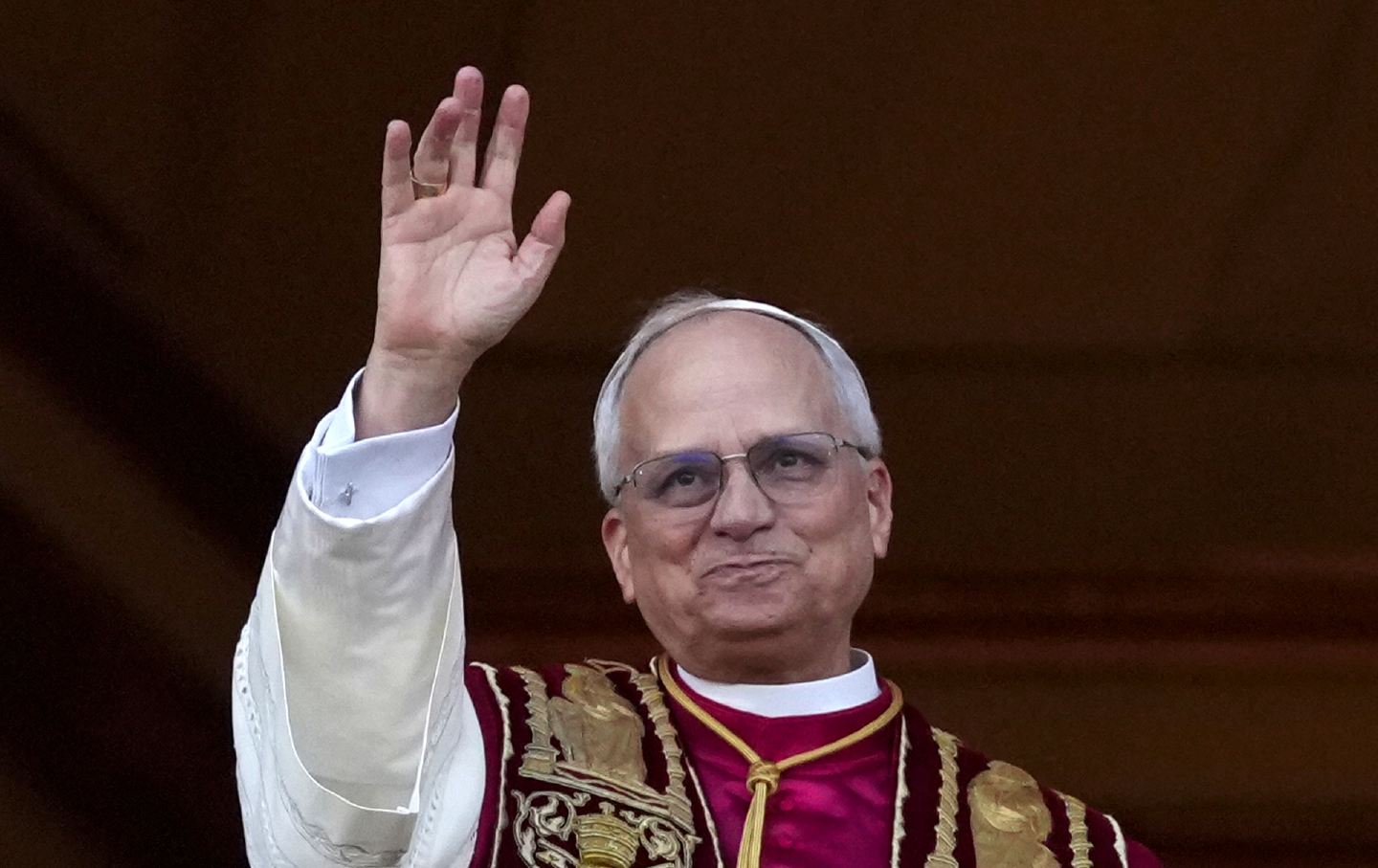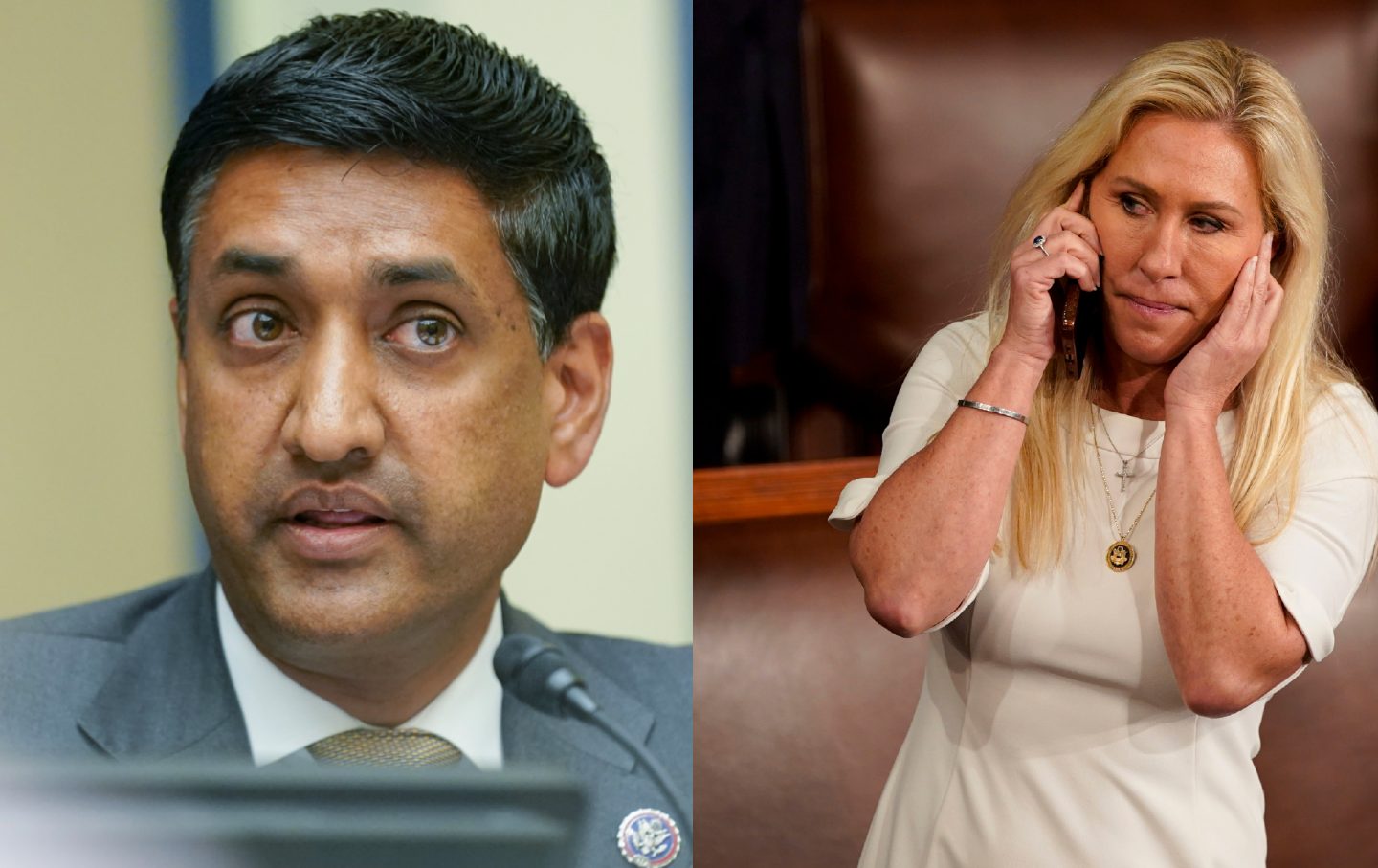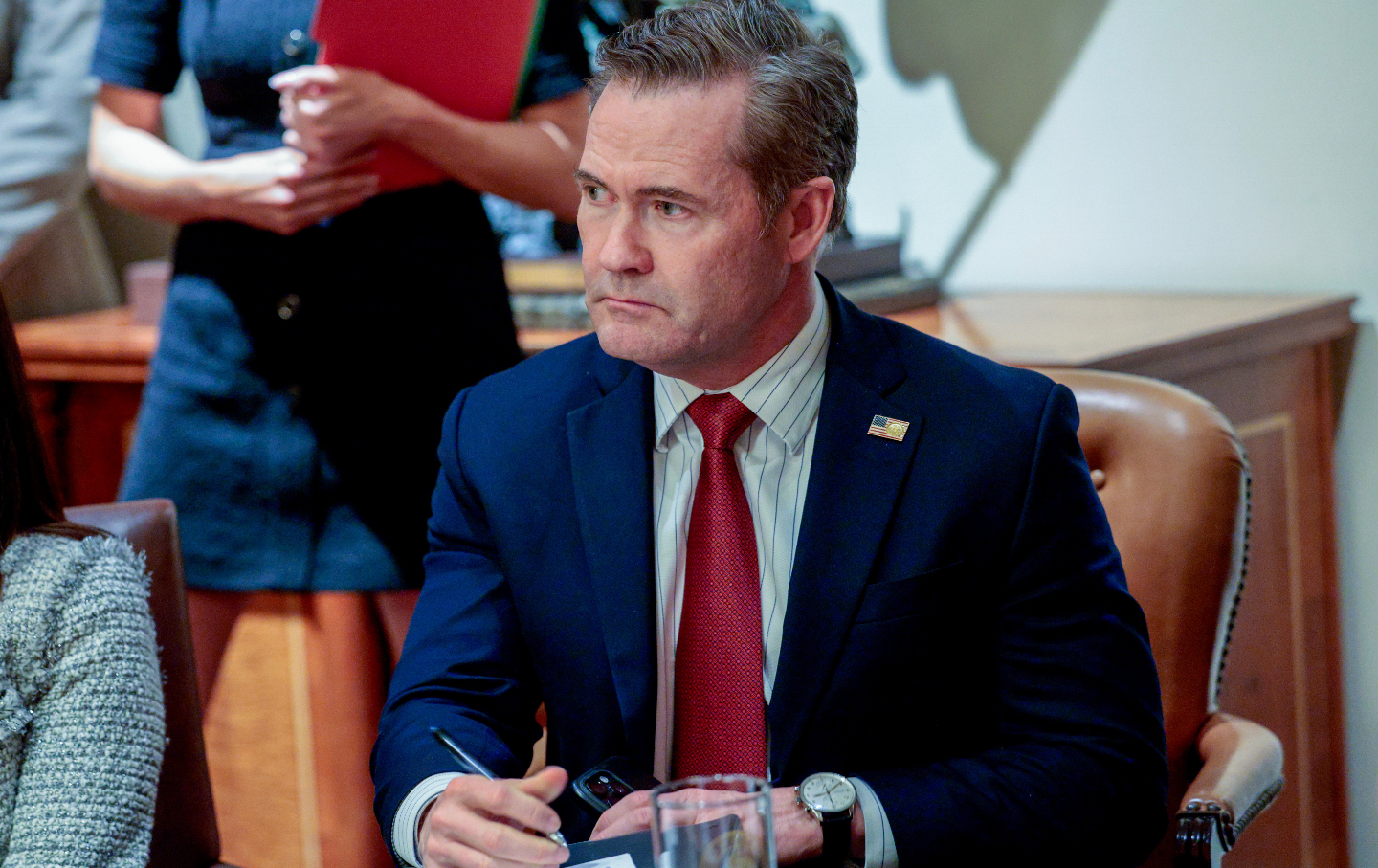Did Narendra Modi Kill a Canadian Citizen?
New cold war politics might end any investigation into the assassination of a Sikh activist before it begins.
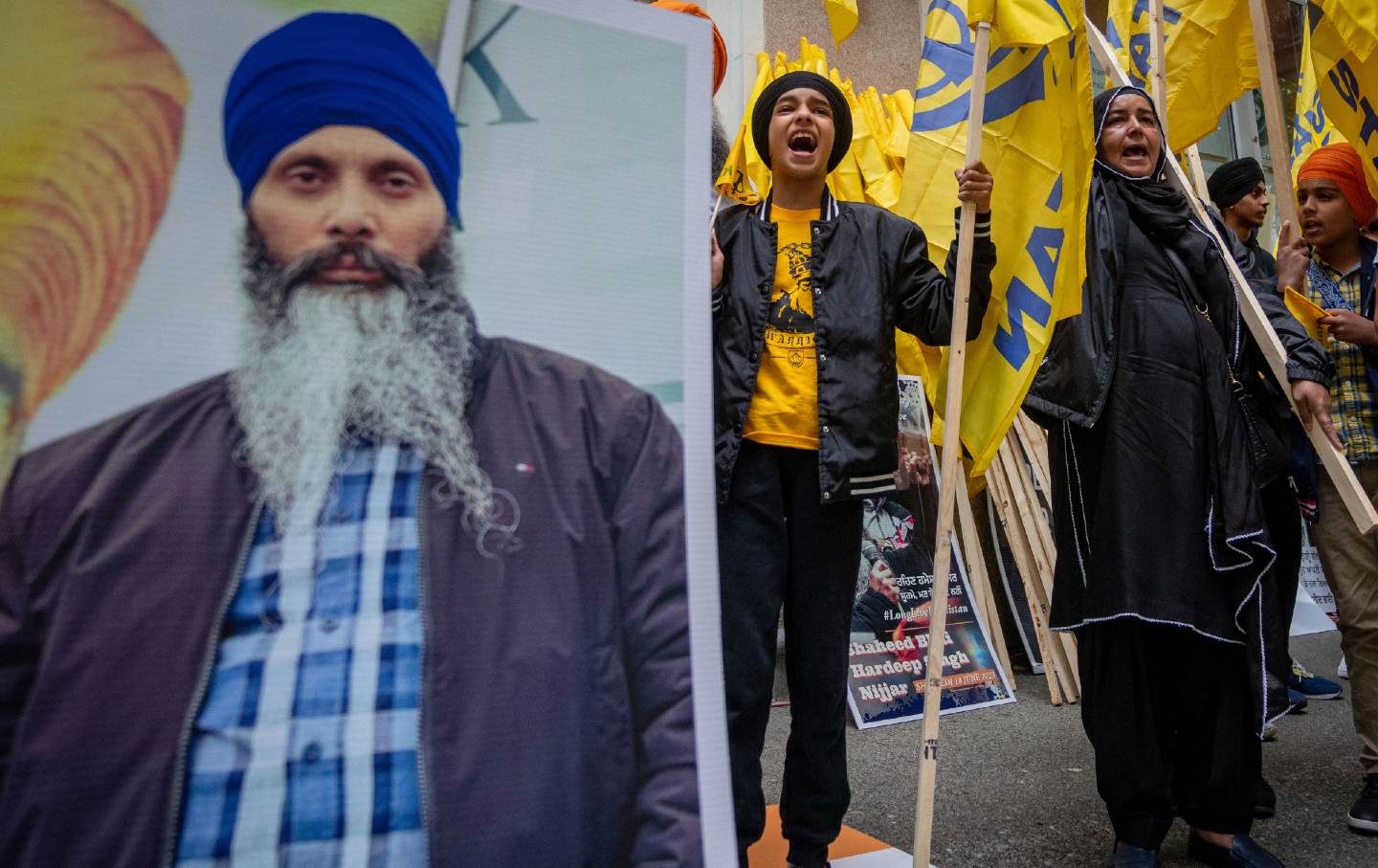
On June 18 of this year, Hardeep Singh Nijjar an Indian-born plumber who had immigrated to Canada, was murdered in the parking lot of a Sikh temple in Surrey, British Columbia. But Nijjar was no ordinary plumber. He had been an active leader in the Khalistan movement that promoted a separatist Sikh state in Punjab, India. Nijjar had been labeled a terrorist by the Indian government. Prior to his death, the Canadian Security Intelligence Service (CSIS) had warned Nijjar of assassination plots against him.
On September 18, exactly three months after Nijjar’s killing, Canadian Prime Minister Justin Trudeau made an explosive allegation against the Indian government that threatens to overturn the foreign policy of not just Canada and India but also the United States. Speaking to the House of Commons, Trudeau said, “Over the past number of weeks, Canadian security agencies have been actively pursuing credible allegations of a potential link between agents of the Government of India and the killing of a Canadian citizen, Hardeep Singh Nijjar. Any involvement of a foreign government in the killing of a Canadian citizen on Canadian soil is an unacceptable violation of our sovereignty.”
Trudeau called on the Indian government to cooperate with Canada in the investigation. The CSIS had shared some of the same information it provided to Trudeau with the leaders of the nation’s two main opposition parties, the Conservative Party of Canada and the New Democratic Party, who joined Trudeau in calling for Indian cooperation in an investigation.
The Indian government, headed by Prime Minister Narendra Modi, has flatly denied the allegation, describing them as “absurd,” rejecting the call for cooperation. Instead, Canada and India are now engaging in a round of reciprocal hostility and expelling each other’s diplomats. Canada has reached out to allies such as the United States and the United Kingdom to help in the investigation. No country has joined Canada in affirming its claim, although there’s speculation that the United States provided the original intelligence about the assassination plots before the killing.
The evidence shown to Trudeau and other Canadian political leaders has not been made public, nor is it likely to be. Intelligence agencies are rarely transparent about how their results are produced, on the grounds that they have to protect their covert techniques and informers. There’s no more reason to trust anything the CSIS says simply on its say-so than there is to trust anything the CIA, MI6, or the Mossad say. A good rule of thumb for claims by intelligence agencies is that what is asserted without evidence can be denied without evidence.
Not that Modi deserves the benefit of the doubt either. He’s an authoritarian ethno-nationalist riding on a wave of right-wing Hindu intolerance toward religious minorities. As chief minister of Gujarat in 2002, he incited an anti-Muslim riot that left more than a 1,000 people dead. On the issue of Khalistan nationalism, he’s cynically picked a fight with an enemy that barely exists. Inside India itself, Khalistan nationalism peaked in the 1980s and 1990s, before it was defeated by a ferocious counterinsurgency program. Today, Khalistani sentiment is far stronger in the diaspora than in India itself—but that is a sign of weakness, not strength.
Tellingly, one of the roots of Modi’s wrath is the fact that the Sikh diaspora (sometimes with the encouragement of politicians like Trudeau) supported the wave of farmers’ protests that erupted in 2020 over Modi’s pro-corporate agricultural policies. But those protests were motivated by justified economic grievances. Modi’s threat inflation on the alleged dangers of the Khalistani movement is a typical demagogic move—conjuring up an external foe to foster domestic unity.
There is alarming evidence that some of Modi’s political allies, far from joining him in denying the attack, think he hasn’t gone far enough. Murtaza Hussain of The Intercept flagged a video from Major Gaurav Arya, described as “a retired Indian military officer connected to the ruling government.” The video, Hussain notes, “appears to be a kill list of Canadian citizens.”
If it does turn out that Modi ordered the assassination of a Canadian citizen on Canadian soil, what might be the consequences? Sadly, the most likely answer is very little. The diplomatic spat between Canada and India could well intensify, but even conclusive evidence that Modi ordered the assassination would not change how his regime is treated by the United States and other Western powers.
The United States has an infinite tolerance for human rights abuses—including extraterritorial murder—as long as the guilty party is a key ally. This is the “our SOB” doctrine, based on an apocryphal remark attributed to Franklin Delano Roosevelt about the Dominican Republic’s dictator at the time, Rafael Trujillo, who was supposedly described as “an SOB, but he’s our SOB.”
The “our SOB” doctrine was especially strong during the Cold War. Francisco Franco, Fulgencio Batista, the Shah of Iran, Augusto Pinochet, Ferdinand Marcos, Suharto, and many others were seen by the American foreign policy elite as “our SOBs.”
The new bipartisan consensus, shared by Joe Biden and Donald Trump alike, that the United States must lead a global alliance to counter the rise of China is, despite Washington’s demurral, a return to the Cold War. And with it, Cold War logic has returned—including an inexhaustible supply of forgiveness for “our SOBs.” Biden, who had once promised to make Saudi Arabia a “pariah” for the assassination of journalist Jamal Khashoggi, is instead deepening ties to Mohammed bin Salman’s regime.
As Matt Duss of the Center for International Policy notes, the new cold war with China undergirds the push for “Israel-Saudi normalization.” As Duss explains, it’s important to “understand what ‘Israel-Saudi normalization’ really is: a US-Saudi defense pact, committing US men and women to defend a repressive autocracy in hopes of boxing China out of the region, with a thin ‘peace with Israel’ varnish to corral Democrats into supporting it.”
Popular
“swipe left below to view more authors”Swipe →The same logic of strategic competition with China governs relations with India, which the Biden administration sees as an essential counterweight to China. Far from being shunned as a fomenter of ethnic hatred, Modi is increasingly fawned over in Washington.
And if the American foreign policy elite can drop the Gujarat riot down the memory hole, how much easier to paper over the assassination of one lone Sikh agitator in Canada.
In 1976, the Pinochet regime assassinated two people in Washington: Orlando Letelier (an opponent of the regime) and Ronni Moffitt (an American colleague). Despite the fact that Pinochet’s responsibility for the murder was known to the CIA and the State Department, successive American administrations from Jimmy Carter onward turned a blind eye to the matter.
It’s likely that a similar convenient abandonment of justice will happen in the Nijjar case.
A Wall Street Journal column by Tunku Varadarajan shows that this path is already being prepared. Varadarajan acknowledges that the Modi government has an extremely broad definition of the term “terrorist”: “Yet the Indian government fails to accept that the mere expression of separatist opinion—which in India’s less liberal democracy can get a man classified as a terrorist—is, in Canada, the exercise of a fundamental democratic right.” But this doesn’t dissuade Varadarajan from defending the alliance with India, described it as “the world’s most populous democracy and an increasingly crucial partner of the West and Japan in the tense global cold war with China.”
Varadarajan then elaborates:
The geopolitical imperative—maintaining a unified coalition against China—dictates that a compromise solution be found to end the standoff between Ottawa and New Delhi. The new cold war calls for a strategy not unlike the first one, requiring the West to deal with imperfect allies or partners. You hold your nose and shake hands with Prime Minister Narendra Modi because you need him in the trenches against Xi Jinping.
Morally murky as it may be, the allies need to find a way to get Mr. Trudeau to walk back his accusation. At the same time—and as part of the compromise—it has to be made clear to Mr. Modi that there can be no assassinations by Indian operatives on the territory of friendly countries. Canada’s investigation would taper off in exchange for a commitment from India to perform no such stunts in the future, as well as to reconcile itself to the fact that Canada is a proper democracy with full free-speech rights, even for Sikh separatists.
To be clear, the “morally murky” compromise proposed is that Modi be allowed to get away with murder (again) in exchange for the promise that he doesn’t do it again (pinkie promise).
The ultimate irony is the United States doesn’t even have the moral standing to condemn Modi. As Congress Party Member of Parliament Shashi Tharoor argues, “The two foremost practitioners of extra-territorial assassinations in the last 25 years have been Israel and the US!” This argument might be an instance of what-about-ism—but it also has a basis in truth. In other words, the people who regard Modi as “our SOB” are SOBs themselves.


